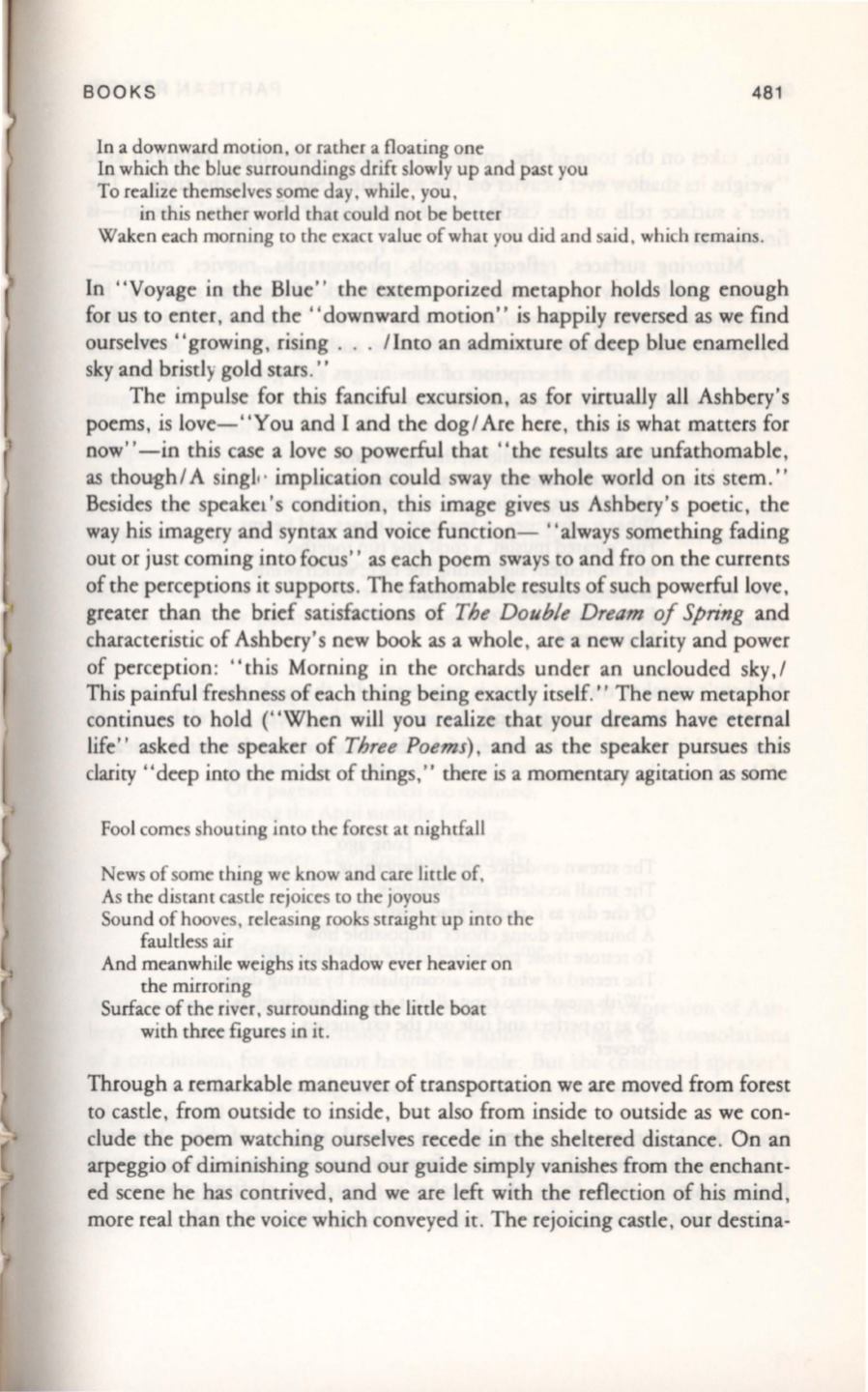
In a downward motion, or rather a floating one
In which the blue surroundings drift slowly up and past you
To realize themselves some day , while, you,
in this nether world that could not be better
481
Waken each morning
to
the exact value of what you did and said , which remains.
In "Voyage in the Blue" the extemporized metaphor holds long enough
for us
to
enter, and the "downward motion" is happily reversed as we find
ourselves "growing, rising ... IInto an admixture of deep blue enamelled
sky and bristly gold stars."
The impulse for this fanciful excursion, as for virtually all Ashbery's
poems, is love-"You and I and the
dogl
Are here, this is what matters for
now" -in this case a love so powerful that "the results are unfathomable,
as
though
I
A singl, ' implication could sway the whole world on its stem."
Besides the speakel's condition, this image gives us Ashbery's poetic, the
way his imagery and syntax and voice function- "always something fading
out or just coming into focus" as each poem sways to and fro on the currents
of the perceptions it supports. The fathomable results of such powerful love,
greater than the brief satisfactions of
The Double Dream of Spring
and
characteristic of Ashbery's new book as a whole, are a new clarity and power
of perception: "this Morning in the orchards under an unclouded
sky,l
This painful freshness of each thing being exactly itself. " The new metaphor
continues
to
hold (' 'When will
you
realize that your dreams have eternal
life" asked the speaker of
Three Poems),
and as the speaker pursues this
clarity" deep
into
the midst of things," there
is
a momentary agitation as some
Fool comes shouting into the forest at nightfall
News of some thing we know and care little of,
As the distant castle rejoices
to
the joyous
Sound of hooves , releasing rooks straight up into the
faultless air
And meanwhile weighs its shadow ever heavier on
the mirroring
Sutface of the river, surrounding the little boat
with three figures in it.
Through a remarkable maneuver of transportation we are moved from forest
to castle, from outside to inside, but also from inside
to
outside as we con–
clude the poem watching ourselves recede in the sheltered distance. On an
arpeggio of diminishing sound our guide simply vanishes from the enchant–
ed scene he has contrived, and we are left with the reflection of his mind,
more real than the voice which conveyed it. The rejoicing castle, our destina-


